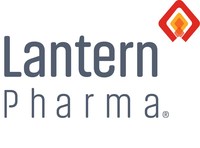The drug is also intended for the treatment of glioblastoma multiforme

Lantern Pharma, announced that the U.S. Food and Drug Administration (FDA) has granted LP-184 Orphan Drug Designation (ODD) for the treatment of glioblastoma multiforme (GBM) and other malignant gliomas. This news follows the recent announcement of the FDA granting LP-184 ODD for the treatment of pancreatic cancer.
LP-184 is a small molecule drug candidate and next-generation alkylating agent that preferentially damages DNA in cancer cells that over-express certain biomarkers or that harbour mutations in DNA repair pathways. LP-184 is being developed for several targeted indications in cancer, including glioblastoma and pancreatic cancer.
GBM is a rare disease with an overall five-year survival rate of 5%. This means that only approximately 5 in 100 people survive GBM for five years and beyond. In 2020, 12,000 new GBM cases were diagnosed in the U.S. and more than 154,000 new cases were diagnosed worldwide. LP-184 acts by damaging DNA selectively in tumours that express high levels of the enzyme PTGR1. Analyses driven by RADR Lantern's proprietary machine learning-based artificial intelligence platform, have identified, in clinical databases, GBMs with elevated PTGR1 expression and harbouring defects in DNA damage repair components as a targeted subset of genetically defined patients who could potentially benefit from LP-184-based therapy. According to market analysts at GlobalData, the global GBM market is expected to reach US $1.8 billion in therapy sales and is growing at a CAGR of 12.8%.
"GBM represents an important, underserved clinical opportunity, with a significant unmet medical need," stated Panna Sharma, President & CEO of Lantern Pharma. "This second Orphan Drug Designation from the FDA for the LP-184 program marks another major milestone and is further validation of the power of our data-driven approach to oncology drug development, aimed at more targeted and effective oncology therapies."
"We recently reported positive pre-clinical data that demonstrated LP-184 inhibits tumour growth by greater than 106% and improved survival in animal models of GBM," continued Mr. Sharma. "This new data that we reported, in collaboration with the Kennedy Krieger Institute and Johns Hopkins, on the efficacy of LP-184 in GBM cell lines, in-vivo animal models, and in patient-derived neurospheres, validated in-silico predictions generated by our RADR A.I. platform. We believe LP-184's ability to cross the blood-brain barrier, together with its anti-tumour efficacy and sensitivity correlations with relevant biomarkers, highlight LP-184's potential to be used as both monotherapy as well as a synergistic agent in combination with other drugs to address the unmet needs in GBM and other aggressive central nervous system tumours."
The FDA's Office of Orphan Products Development grants orphan status to drugs intended for the safe and effective treatment, diagnosis or prevention of rare diseases or conditions affecting fewer than 200,000 people in the United States. Orphan Drug Designation is designed to provide drug developers with various benefits to support the development of novel drugs, including market exclusivity for seven years upon FDA approval, eligibility for tax credits for qualified clinical trials, waiver of marketing registration application fees, reduced annual product fees, clinical protocol assistance and qualification for expedited development programs.

Subscribe To Our Newsletter & Stay Updated